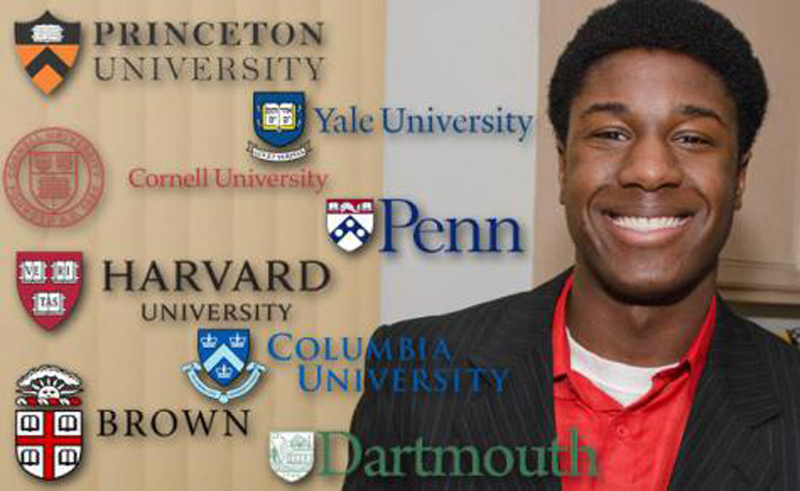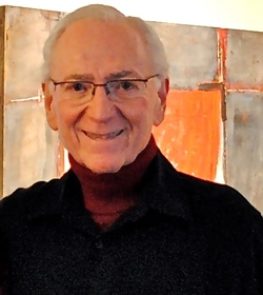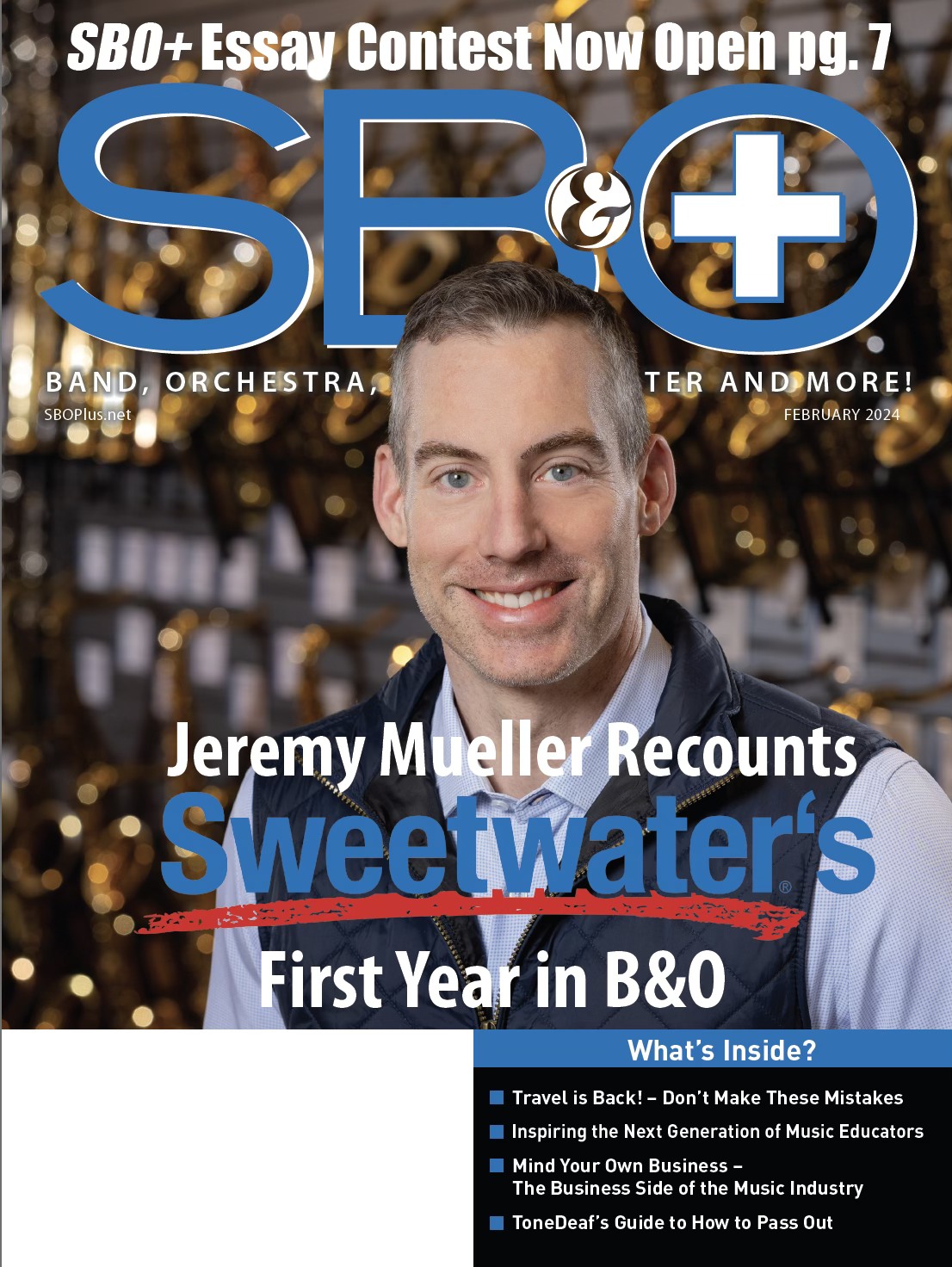Search Results for " essay"...
-
Music For All Grants Tennessee High School Senior William D. Revelli Scholarship
News | March 25, 2015Music for All, one of the largest educational 503(c) non-profit organizations dedicated to music-making, has chosen Mikaela Ray of Franklin H.S. in Franklin, Tennessee as the 2015 William D. Revelli Scholarship recipient.This annual scholarship of $1,000 was created in memory of Dr. William D. Revelli, one of America’s finest and most accomplished conductors, to help one graduating high school senior each year that is performing at the Music for All National Festival study music education at the university level.
Read More... -
KHS America Awards a Future Music Educator with $1K Scholarship
News | January 20, 2015San Antonio, TX – January, 2015 – Tabor Stamper; President of KHS America, awards Chauncey Kleveland with a $1,000 scholarship to help her pursue her dream of becoming a Music Educator.
Read More... -
Perspective: Opening Doors of Opportunity
Commentary | April 16, 2014Studying music can lead to many exciting career possibilities
 By the time you read this, most of the high school seniors in your schools and districts will have received the much-anticipated piece of mail that will shape the course of their lives: college acceptance letters. Hopefully all of your students are on the way towards matriculating and making their academic dreams come true. Certainly, their resumes and applications have been strengthened by participation in your courses and ensembles, whether at the elementary, junior, or high school level.
By the time you read this, most of the high school seniors in your schools and districts will have received the much-anticipated piece of mail that will shape the course of their lives: college acceptance letters. Hopefully all of your students are on the way towards matriculating and making their academic dreams come true. Certainly, their resumes and applications have been strengthened by participation in your courses and ensembles, whether at the elementary, junior, or high school level.Much is made of the lifelong benefits of musical study, and for good reason, but there are also plenty of tangible benefits to consider as well. By now, you have probably heard the story of Kwasi Enin,
Read More... -
Report: NYO-USA
Features | January 21, 2014Carnegie Hall’s National Youth Orchestra trains the USA’s most promising musical ambassadors
Limitless potential fills the air these days at Carnegie Hall. Why? The National Youth Orchestra USA, which celebrated its inaugural season in the summer of 2013, has already established itself as a premier training and performance program for the country’s finest young musicians. And in terms of cultivating more wonderful talent, the best is yet to come.
Read More... -
Bennett Reimer, 1932-2013
News | November 22, 2013 Pioneering music educator and author Bennett Reimer passed away on November 18 at the age of 81. Reimer's A Philosophy of Music Education was the first if its kind in the world-wide field of music education, often cited as one of the most influential books of its kind.
Pioneering music educator and author Bennett Reimer passed away on November 18 at the age of 81. Reimer's A Philosophy of Music Education was the first if its kind in the world-wide field of music education, often cited as one of the most influential books of its kind.Reimer authored some two dozen other books and over 150 published articles and chapters. He was also a frequent guest lecturer, advisor, workshopper, and project director all over the United States and Canada, and in many countries around the globe. In 1985 he established the Center for the Study of Education and the Musical Experience at Northwestern University, a weekly research forum for music education doctoral students and faculty, which continues to this day.
Read More... -
Welcome to the New SBOMagazine.com
News | October 3, 2013Same location, new look! Explore the brand new SBO website, www.sbomagazine.com, and check out all of the great original content found in SBO magazine – and more! Browse through categories like “Performance,” “Commentary,” “News,” and, “Repertoire,” or execute keyword searches that sift through the thousands of articles that have been published in SBO over the […] Read More... -
From the Trenches: Why Not Focus on Positive Trends?
Commentary | June 21, 2013As the 2012/2013 school year comes to a close and plans for the upcoming year begin to take shape, this is a good time to evaluate where we are, the condition of our programs, our prospects for a new year, and ways we may work to improve our programs. This is also a good time to take stock of the environment in which our programs exist, the bigger picture of music education across the country.
Read More... -
Carl Fischer Offers Support with VH1 Save the Music for the Music for Your Schools Contest
News | May 30, 2013Carl Fischer Music has joined forces with Yamaha, D’Addario and VH1 Save the Music to launch the Music For Your Schools Contest, designed to benefit school bands and orchestras in need.Carl Fischer Music has joined forces with Yamaha, D’Addario and VH1 Save the Music to launch the Music For Your Schools Contest, designed to benefit […] Read More... -
Knights of the Rock Table
Archives | March 8, 2013By Joel Carle
With new challenges such as anti-bullying standards and the Common Core push facing music educators, I have found that it is time to get creative! By evolving my practices and programs in ways that would have been considered ludicrous even 10 years ago, I am finding ways to increase ensemble enrollment while incorporating new common core and anti-bullying standards.
An important step to increasing student participation is being open to the musical tastes of the students. During my own high school experience as a student, I would play percussion with the high school band, but I was also in a variety of rock bands on the side. There always seemed to be a divide between “school music” and “home music,” the music I listened to and played at home was completely different from the music I performed at school. As I advanced through my college career, I began to ask myself why teachers only taught limited types of music. There had to be other valid avenues to be explored. My mind began formulating plans on how I could manage running an ensemble, lessons, and theory, among other courses, while offering more options to students. Since there are finite hours in the school day, it seemed as though an afterschool group would be necessary to accomplish the feat. However for the program to be successful students would have to show a keen interest.
While it is easy for musically trained teachers to sit back and scoff at lesser forms of music, it is important for us to realize that value can be found outside of our own comfort zones. One of the first steps that I took in the direction of presenting more currently popular music led to the creation of a rock music program called “The Knights of the Rock Table.”
The Knights of the Rock Table
Prior to the start of this program, students would come up to me asking about a place to practice with their bands or to tell me how they really wanted to learn to play guitar, drums, and so on. Having a background in performing with various bands, I started to work with the students on these instruments during their (and my) lunchtimes. As the number of students grew larger and larger, I needed to expand to an afterschool time slot where we would have more than just a mere 20 or so minutes to work. As a result “The Knights of the Rock Table” was born. The program, named after our very own Windsor Black Knights, started as a twice-a-week afterschool club where students could learn “social” instruments and form small rock ensembles. Students were taught through group lessons and guided ensemble practice. As students achieved a certain level of success, my colleagues and I began to serve more as guides, promoters, and band members than as teachers. Students responded positively to this format. It didn’t take very long for students with little school music experience to take interest and start coming out of the woodwork.
The Knights of the Rock Table program is currently in its third year of existence. Student and teachers perform side by side. Many of the teachers who help with the club actually teach non-music curricula. Students get to know their teachers outside the classroom and enjoy a mutual interest in music. Quite frequently members of the group perform at various school functions and the popularity of our annual rock show has increased drastically. It is not uncommon for the rock show to have one of the highest parent attendance rates. Furthermore, I am constantly contacted to provide bands for local school and community events.
Funding
A common concern in creating a group similar to this is the cost. While our administration was gracious enough to provide some initial equipment, we had to find a way to support the group: the participating teachers volunteer their time and our performances act as fundraisers. The students are happy to have a chance to perform and be able to keep The Knights of the Rock Table going. One of our biggest sources of income is our annual rock show. Tickets are sold for the event and we run concessions, raffles, and giveaways throughout the performance. This is the only event where almost every student in the program performs. When bands perform in the community at local venues, donations are made to the club. As a result, we now provide for ourselves 100 percent. We are able to get new instruments, make repairs, and purchase miscellaneous items like sticks and strings. When contacted, I ask that a donation be made to the club.
A Safe Haven for Students
As the program increased in popularity, it acted as a gateway of sorts to get students interested in having a deeper understanding of music. Enrollment in Music Theory Class skyrocketed and concert band member numbers steadily increased, too. As a result, the music suite in our high school has become a social Mecca for all sorts of students. Everyone is welcome and negativity is not permitted. This directly correlates with the new anti-bullying standards. The music suite often houses many walks of life from the common high school scene. We have our athletes, gamers, classical musicians, pop musicians, and everything in between, hanging out and enjoying their high school experience. Since the music suite has become a haven safe from ridicule for students looking for a “place,” students want to be part of this social force.
To further the positive atmosphere and bring music education to their level, I have begun utilizing current social networking sites such as Facebook. On the music suite page, the music education and discussion continues well outside the hours of the school day and continues building the bonds between the students. On this site I serve more as a monitor, only to make sure that the content remains appropriate, while the sense of community deepens. Many students want to be in the safe environment of the music suite as much as possible. Consequently, whether that was their initial intent or not, they are signing up to participate in ensembles. These students are proud to be musicians and proud to be different. Due to the work of my colleagues and myself, the high school band has gone from roughly 30 students to over 70!
Addressing the ‘Common Core Push’
Successfully increasing music student enrollment is only part of the new challenges facing music educators. Recently, the Common Core push of teaching English and math skills has created added stress. Incorporation of these elements requires some ingenuity on our part. Naturally, math seems far easier to incorporate into our established curriculums. Rhythmic figures, intervals, and time signatures all effortlessly relate to mathematics. Unfortunately English can be much harder for the music educator to fit into the curriculum. While ensembles may not be the ideal arena for writing essays, there are other opportunities.
This year I am piloting a course entitled “Pop Music and Society.” This course essentially forms a bridge between all of the previous topics and the English common core. In Pop Music and Society, students are in charge of leading the entire class as an ensemble. Students choose the music, assign/ write parts, and ensure that every student is prepared for our in-class performance. Any type of popular music can be chosen. There could easily be country music one week and rap the next. This in turn has students listening to music that they would not normally be exposed to. Besides the performance aspect, we also have a content aspect. The students analyze lyrics, create document-based essays using articles from magazines, create opinion essays, and discuss sociological and psychological implications of music based on high-level text.
Creative Solutions Take Time
With so many teachers looking for ways to improve programs, it is time to think outside of the box. I have found my new approach successful with the students. These ideas may not be the solution to all of your program’s troubles and challenges, but hopefully they provide some motivation to try something new. We are artists: being creative is what we do! One thing is for sure, the brute force approach of limiting students to our world is causing many potential musicians to avoid joining the high school music program. You may be surprised to find that, as the creative ball gets rolling, you may enjoy your career more and more. My only disclaimer is that to do these things well takes time. When contemplating the pros and cons of trying some of these options, remember why we are here: to create good music and good people.
Joel Carle has had music education experience with almost every age group. He is currently the high school instrumental music instructor at the Windsor Central High School, in Windsor New York. He also performs and teaches privately in the Binghamton, New York area. Prior to working at Windsor, Joel has taught as an adjunct professor at SUNY Fredonia and elementary general music at Fredonia Central School District. While working at Fredonia, he directed the New Horizons jazz band for senior citizens, ran an after school music program at the Boys and Girls Club, and led a music technology program. Joel has also been a presenter at the NYSSMA Conference in Rochester, New York.
Read More... -
October 2010
Archives | October 13, 2010CodaBow's JOULE Designs for Violin, Viola & Cello
The CodaBow's JOULE features a trademark Graphite Diamond Weave architecture that extends precisely from button to tip. This technology is said to contribute to the balance between strength and flexibility. The JOULE's Acoustic Core, comprised of a medley of advanced fibers, imbues a natural sensitivity and organic characteristic.
The frog design is said to increase effective hair length while preserving thumb position and dynamic balance, which encourages more sound from the lower range while heightening string control.
Read More... -
2009, May
ChoralHeadlinesJuly 2009 | July 28, 2009The NAMM Foundation and Disney Channel Announce Grant RecipientsThe NAMM Foundation and Disney Channel announced the recipients of “Disney’s High School Musical: The Music in You Grant Program” that encourages middle and high schools across the U.S. to put on their own school stage production of Disney’s “High School Musical.” This is the second year […] Read More... -
The Choral Commission: Writing and Preparing Student Texts for Submission
ChoralGuest EditorialJanuary 2009 | January 23, 2009As the weather changes from warm to cold and we enter the winter season, the choirs at Learwood Middle School are working hard on music for our Winter Concert and getting ready for a long awaited vacation. But the students and, for that matter, their director are anxious to leave behind the Yuletide and begin […] Read More...















